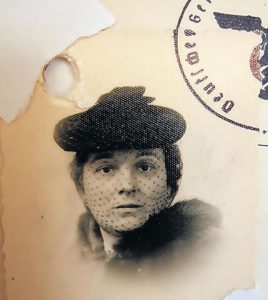
April 21, 1896
Geertruida (Truus) Meijer is born in Alkmaar, the Netherlands
1922
Truus marries Joop Wijsmuller (Geertruida Wijsmuller-Meijer)
January 30, 1933
Hitler becomes chancellor of Germany; the same year, Truus begins traveling to Germany to bring Jewish children to safety in the Netherlands
1938
As the year opens, Austria is a free and independent country, with one of the world’s largest and most prominent Jewish populations; most Austrian Nazi leaders are in prison after a failed 1934 putsch
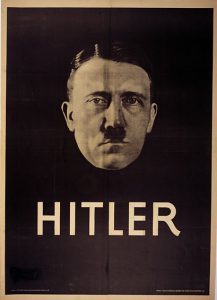
January
The Netherlands closes it borders to German refugees, as many countries around the world have already done
March 11
The Austrian Nazi Party seizes control in well-planned coup
March 12
The Anschluss: at dawn, the German 8th Army crosses into Austria; Hitler himself enters that afternoon, occupying Austria
March 15
Hitler declares from the Austrian imperial palace the entry of his homeland of Austria into the German Reich; within days, 76,000 Jews are arrested
April 10
Austrians vote overwhelmingly for annexation with Germany
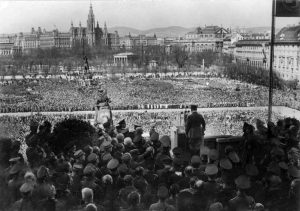
At the Evian Conference, 32 countries gather to consider the refugee crisis, but only the tiny Dominican Republic agrees to accept more Jews
October 1
Germany occupies the Czech Sudetenland; the world looks the other way
November 9
Kristallnacht (the Night of Broken Glass): “spontaneous” Nazi mobs across the Reich burn synagogues, vandalize businesses, damage hospitals, schools and homes; they arrest 30,000 Jews, and kill 91
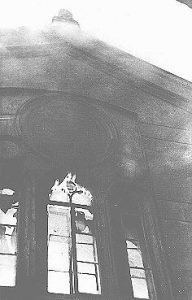
November 15
Jewish and Quaker leaders in Britain propose the Kindertransport effort to bring Reich children to safety in England; a group of agencies operating as the Movement for Care of Children from Germany promises to find them homes
November 21
British Parliament adopts legislation allowing the kindertransport
December 1
The first Kindertransport departs from Berlin, rescuing 200 children
December 2
Norman Bentwich of Britain asks Truus to appeal to Adolf Eichmann, the Nazi in charge of Vienna, for permission to arrange kindertransports from Austria, hoping he might be persuaded by a gentile; she leaves that same night
December 3
Truus, arrives in Vienna; she is arrested that night and charged with being a Jewess, but manages her own release
December 5
Truus meets with Eichmann, who decides to “play a little joke”: if she can accomplish the impossible feat of having 600 children ready to travel to England that Saturday—the Sabbath—they will be allowed to leave; Truus begins immediately to organize the effort
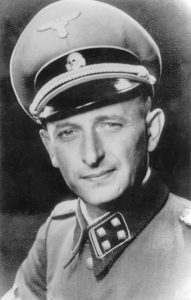
December 8
A radio appeal in Britain for foster homes and donations draws support from storekeepers, housewives, and even Britain’s own children
December 10
The first kindertransport from Vienna leaves with 600 children, each child carrying a small suitcase and identified by a manila label
December 12
The first Kindertransport from Vienna arrives in England; the children are housed at the Dovercourt summer camp until foster parents can be found
December 18
A second kindertransport of 150 children leaves Vienna on Hanukah; transports continue regularly until the war begins
1939
February 9
The bipartisan Wagner-Rogers bill to bring 20,000 children from the Reich to the U.S. is introduced; despite Eleanor Roosevelt’s support, a June 2 appeal to Roosevelt is marked “File no action -FDR,” and the bill never passes
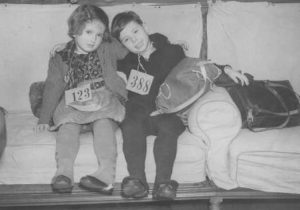
The use of Dovercourt as a reception centre for the Kindertransports ends
March 14
The first transport of children from Prague leaves the day before the Germans occupy the remainder of Czechoslovakia
September 1
Germany invades Poland, and two days later, Britain and France officially declare war on Germany; the last Kindertransport—the ninth from Prague – is stranded in Germany; the fate of those children is unknown
September through May 1940
Although the Kindertransports are ended, Truus continues to help German refugees get to England and France
1940 and Beyond
May 10, 1940
Germany invades the Netherlands; Truus, in Paris, hurries back to Amsterdam
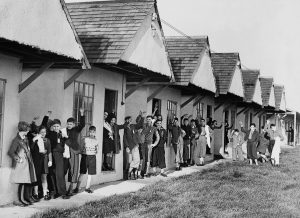
May 14, 1940
Truus takes dozens of children to board the SS Bodegraven in IJmuiden, the last boat to leave for England; she chooses to remain in the Netherlands throughout the war, continuing to risk her life for others
May 1941
Truus is arrested a second time by the Gestapo, but again gains release
1944
Truus persuads the Germans that fifty Jewish orphans who were to be sent to Auschwitz were Aryan; as a result they are instead sent ultimately to Theresienstadt, where they receive preferential treatment and survive the war
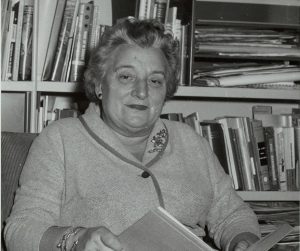
1945-1966
Truss is a member of the Amsterdam City Council
September 30, 1948
Truus receives a Medal of Gratitude from the French Republic
May 1960
Truus is one of the founders and a board member of the Anne Frank House in Amsterdam, which opens May 3, 1960
October 18, 1966
Yad Vashem recognizes Truus as Righteous Among the Nations, an honor bestowed upon non-Jews for risking their lives to aid Jews during the Holocaust
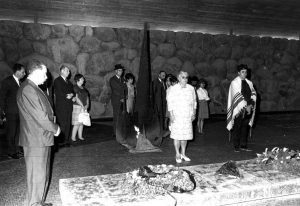
August 30, 1978
Truus dies in Amsterdam
Some 10,000 children — the exact number is unknown — found refuge in Britain thanks to the kindertransport effort. They went on to be prominent artists, politicians, scientists, and even Nobel laureates. Most never saw their parents again.